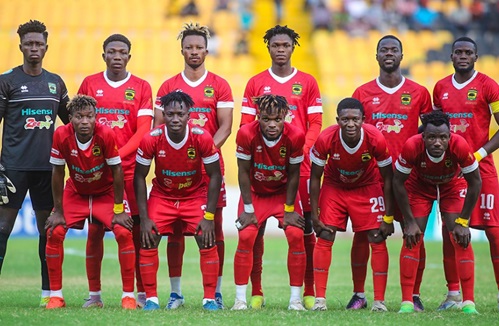The lack of transparency in Ghana’s fisheries industry is a setback to the sustainable management of the country’s fisheries resources, the Executive Director of the International Secretariat of the Fisheries Transparency Initiative (FiTI), Sven Biermann, has observed.
He said the Government of Ghana had failed to disclose basic information on its fisheries sector such as its fish stock assessments, fishing agreements, revenue mobilised from licensing of fishing vessels, and landing fees and data of fish catches.
“In Ghana the data that is publicly available are often incomplete, outdated, unverified or not readily accessible,” he said.
Ghana, he added, had freedom of information laws and that should ensure that information flow was timely to make it readily available, accessible and credible, “but it should not be on demand or as a favour”.
While Ghana’s Constitution recognises the right of citizens to have access to information, the importance of public access to government information is also emphasised in the UN Sustainable Development Goals (SDGs) for the achievement of Goal 16 and as an enabler to achieving other goals.
Transparency in fisheries management, Mr Biermann said, yielded multiple benefits such as strengthening the ability for effective oversight, accountability and public dialogue, and enhanced the capacity to manage fisheries sustainably based on best available information.
“Additionally, it prevents the spread of rumours and misinformation, boosts market access and investment, and avoids the marginalisation of certain actors in the sector,” he added.
Mr Biermann was speaking at a training and capacity-building programme for media practitioners on activities and impacts of distant water fishing vessels (DWFV) organised by the Centre for Maritime Law and Security Africa (CEMLAWS Africa) and the Centre for Coastal Management (CCM) of the University of Cape Coast.
The training was part of a project titled: “Promoting local capacity to address the destabilising impacts of foreign fishing vessels in the Gulf of Guinea and Mauritania”, coordinated by CEMLAWS Africa and CCM, with funding support from the Department of State of the US Embassy.
Mr Biermann said governments had the fundamental responsibility to manage fisheries resources on behalf of their citizens, and to conserve marine biodiversity for present and future generations.
That, he said, would require making information available and prioritising transparency in the fisheries sector.
“The availability of information will inform the public to know how well the sector is being managed by the government.
But currently, there is no assessment of fish stock.
There is no information on fish health. How does the government know what is in its waters?
How many women are working in the fisheries sector?
How many people work in the post-harvest sub sector, how does the government make policies to address the issues?,” he queried.
Mr Biermann agrees that Ghana was not data deficient as the government had data which state agencies held internally and failed to share with the public.
He said transparency was also not about just putting information on the websites of the state agencies but making it easily accessible and understandable.
“Transparency is not voluntary.
It is a government’s duty and a citizen’s right”.
So far, FiTI has developed an internationally recognised standard which serves as a framework that defines what information on fisheries management should be published online by national authority.
To facilitate a reversal of the situation in Ghana, FiTI, in collaboration with CEMLAWS and CCM, had earlier engaged stakeholders including the Ministry of Fisheries and Aquaculture Development, the Fisheries Commission, the Parliamentary Select Committee on Food, Agriculture and Cocoa Affairs, the Ghana Navy, Marine Police of the Ghana Police Service, Civil Society
Organisations and Non- governmental Organisations.
Countries that were on board the FiTI standard, Mr Biermann said, included Schellels, Mauritania, Sao Tome Principe, Cape Verde, Senegal, Madagascar, Guinea and Ecuador while there were plans to bring Peru on board.
The Executive Director of CEMLAWS, Africa, Dr Kamal-Deen Ali, explained that the Distant Water Fishing Vessel Project was to evaluate the impacts of the activities of foreign DWFV and promote media and civil society organisation training, community advocacy and develop strategies to enhance local sustainable industrial fishing.
The project, he said, was necessary because in African countries, about 97.2 per cent of DWFVs were foreign-owned and their activities threatened the livelihoods of coastal communities and the food security of the countries.
Apart from Ghana, he said the two-year project was being carried out in Benin, Côte D’Ivoire, Senegal, Cameroon, Mauretania and Sierra Leone.
The Director of the Centre for Coastal Management, Prof. Dennis W. Aheto, said the lack of transparency was making it difficult to establish the destabilising impact of DWFVs in the countries involved in the project.
He said the objective of the training workshop was to equip participating journalists with relevant skills and expertise in fisheries laws, management policies and fisheries livelihoods while drawing on lessons of IUU fishing and DWFV activities.
SOURCE: Graphiconline






